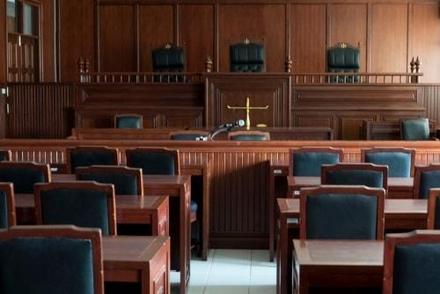TELEPHONES ANSWERED 24 HOURS A DAY
Recent Blog Posts
What Are the Counterfeiting Laws and Penalties in the United States?
 The FBI has recently broken up a counterfeiting scheme involving fake iPhones and iPads. The scheme was a sophisticated one. Although the devices were fake, they contained the original International Mobile Equipment Identity numbers and serial numbers. These are nearly impossible to counterfeit and usually only appear on original products. The suspects are three brothers that now face a number of counterfeiting charges. Many people think that counterfeiting is a somewhat old crime, but stories like this show it is just as prevalent as ever. So, what are the penalties for it, and are there any defenses to these charges?
The FBI has recently broken up a counterfeiting scheme involving fake iPhones and iPads. The scheme was a sophisticated one. Although the devices were fake, they contained the original International Mobile Equipment Identity numbers and serial numbers. These are nearly impossible to counterfeit and usually only appear on original products. The suspects are three brothers that now face a number of counterfeiting charges. Many people think that counterfeiting is a somewhat old crime, but stories like this show it is just as prevalent as ever. So, what are the penalties for it, and are there any defenses to these charges?
The Definition of Counterfeiting Under the Law
Under the law, found at 18 U.S.C.A., Section 471, counterfeiting is defined as intending to defraud, falsely create, forge, counterfeit, or alter any security of the United States. The term ‘security of the United State’ indicates U.S. currency. However, for a bill to be considered counterfeit, the fake must be close enough to real currency that it would fool a reasonable person.
Is it Really a Federal Crime to Kill a Bald Eagle?
 In late November, a story emerged from Missouri that involved an injured eagle. The University of Missouri College of Veterinary Medicine confirmed that an eagle was shot and injured, a rare injury for an eagle to sustain. Veterinarians have helped repair the eagle’s wing that was injured but now, authorities are looking for a suspect that may have committed a federal crime.
In late November, a story emerged from Missouri that involved an injured eagle. The University of Missouri College of Veterinary Medicine confirmed that an eagle was shot and injured, a rare injury for an eagle to sustain. Veterinarians have helped repair the eagle’s wing that was injured but now, authorities are looking for a suspect that may have committed a federal crime.
The story has many people talking. Not only because it involved an injured bald eagle, but because it brought to attention something that many people thought was just a myth. Is it really a federal crime to kill a bald eagle? Yes, it is, and the eagle does not have to die in order for federal charges to stand. Even injuring an eagle, or any part of an eagle’s nest or eggs could also result in federal charges.
The Bald and Golden Eagle Protection Act
The Bald and Golden Eagle Protection Act has been in place since 1940 when Congress passed it as federal law. Congress enacted the legislation in response to the fact that the number of bald eagles was declining rapidly around the state. The Act originally only included the bald eagle. In 1962, the Act was expanded on by Congress to include golden eagles.
Indicted by a Grand Jury? Your Case May Still Be Dismissed
 So, a grand jury has convened and determined that there is enough to indict you. It looks like you are headed to a federal criminal trial and there is no hope for anything else to happen. While it may seem that way, that is not always the case. At this point, you must speak to a federal criminal defense attorney. A federal attorney can advise you on the many options you still have, including those below that could have your case dismissed.
So, a grand jury has convened and determined that there is enough to indict you. It looks like you are headed to a federal criminal trial and there is no hope for anything else to happen. While it may seem that way, that is not always the case. At this point, you must speak to a federal criminal defense attorney. A federal attorney can advise you on the many options you still have, including those below that could have your case dismissed.
Biased Jury
Under the Fifth Amendment, you have the right to an independent, informed, and unbiased jury. If for any reason, your attorney feels as though the jury was prejudiced in any way, this is a reason for dismissal. For example, if your case is high profile in the area the grand jury was convened in, and the jury was not sequestered, this is enough reason to have your case dismissed.
An Abundant Reliance on Hearsay
Did You Receive a Federal Grand Jury Subpoena?
 Receiving a federal grand jury subpoena is very frightening. You must take action as soon as possible, as the consequences of doing nothing are great. You may not know whether you are the suspect in a criminal case, or if the federal prosecutor wants to speak to you as a witness. Taking action can help clear this up, and make sure you protect yourself. Below are a few tips that will help you do just that.
Receiving a federal grand jury subpoena is very frightening. You must take action as soon as possible, as the consequences of doing nothing are great. You may not know whether you are the suspect in a criminal case, or if the federal prosecutor wants to speak to you as a witness. Taking action can help clear this up, and make sure you protect yourself. Below are a few tips that will help you do just that.
Contact the United States Attorney’s Office
After you receive your subpoena, there’s a very good chance that the U.S. Attorney’s Office will know much more about the case than you will. You will need to contact them, but it is likely that they will be very reluctant to discuss the case with you, particularly if you are a suspect in a criminal case. This task should be left to a federal criminal defense attorney that will understand how to handle the U.S. Attorney’s Office.
Is Drug Trafficking a Federal Crime?
 It was at the end of October when an Illinois woman was sentenced to 20 years in federal prison after being convicted of drug trafficking. The woman was charged with selling drugs through the mail to a man in South Dakota, who later died after using the heroin he had purchased from her. The story is interesting, as many people know that drug trafficking charges are usually tried at the state level. So, what makes drug trafficking a federal crime?
It was at the end of October when an Illinois woman was sentenced to 20 years in federal prison after being convicted of drug trafficking. The woman was charged with selling drugs through the mail to a man in South Dakota, who later died after using the heroin he had purchased from her. The story is interesting, as many people know that drug trafficking charges are usually tried at the state level. So, what makes drug trafficking a federal crime?
When Trafficking Charges Become Federal
It is true that much of the time, those facing drug trafficking charges will be prosecuted by their own state. If convicted, they will then likely be sentenced to a number of years in state prison. However, there are certain circumstances that could change state trafficking charges to federal charges. These include:
- When the quantity of drugs is exceptionally large
- The arresting officer works for a federal agency
What Is Antitrust Law?
 Antitrust law is an umbrella term for a number of federal laws that are intended to keep businesses operating fairly and honestly. These laws regulate the way companies do business, leveling the playing field and ensuring no one business has too much power. Within antitrust law, a trust is considered a group of businesses that form together to create a monopoly or otherwise control the free market. Some of the most important pieces of legislation in the United State that outline antitrust laws are the Sherman Anti-Trust Act, the Interstate Commerce Act, the Interstate Commerce Act, the Federal Trade Commission Act, and the Clayton Act.
Antitrust law is an umbrella term for a number of federal laws that are intended to keep businesses operating fairly and honestly. These laws regulate the way companies do business, leveling the playing field and ensuring no one business has too much power. Within antitrust law, a trust is considered a group of businesses that form together to create a monopoly or otherwise control the free market. Some of the most important pieces of legislation in the United State that outline antitrust laws are the Sherman Anti-Trust Act, the Interstate Commerce Act, the Interstate Commerce Act, the Federal Trade Commission Act, and the Clayton Act.
Antitrust Laws and Monopolies
It is true that antitrust laws prohibit companies from creating monopolies, which leave consumers without any choice and force them to purchase from one company or group of companies. However, these laws do not prevent companies from controlling a large share of the market, as long as they do so through honest and fair means. When determining whether or not a certain practice is unfair, the courts will use the rule of reason test. This test considers the effect of the business’ decisions on the market.
Animal Cruelty May Soon Be a Federal Offense
 Federal lawmakers have been working on a proposal since the beginning of the year and in late October, that piece of legislation came much closer to becoming law. The new law, if passed, would make animal cruelty a federal crime. Currently, animal cruelty laws are largely left to the states to enact and enforce. The proposed bill is an attempt to expand on a law that was passed during the Obama administration. It has not passed yet but has so far received bipartisan support.
Federal lawmakers have been working on a proposal since the beginning of the year and in late October, that piece of legislation came much closer to becoming law. The new law, if passed, would make animal cruelty a federal crime. Currently, animal cruelty laws are largely left to the states to enact and enforce. The proposed bill is an attempt to expand on a law that was passed during the Obama administration. It has not passed yet but has so far received bipartisan support.
Animal Crush Video Prohibition Act of 2010
While Barack Obama was in the White House, he signed into law the Animal Crush Video Prohibition Act of 2010. This law was in response to a series of extremely disturbing videos depicting animal cruelty. The law got its name because the videos often showed animals being crushed, along with a number of other violent acts. This act made it illegal for people to videotape these acts of cruelty.
The Crime of Unlawful Mailing and Suspicious Packages
 Anyone that has ever been to the post office to mail a package is familiar with the questions postal workers ask. One of those is whether or not the package contains anything that is flammable, toxic, or otherwise potentially dangerous. Most people immediately say the package does not contain any of those contents. Truthfully, most cannot even remember what the postal worker said. However, listening to this question and responding truthfully is important. If you do mail any of those prohibited items, even by mistake, you can be charged with a federal offense.
Anyone that has ever been to the post office to mail a package is familiar with the questions postal workers ask. One of those is whether or not the package contains anything that is flammable, toxic, or otherwise potentially dangerous. Most people immediately say the package does not contain any of those contents. Truthfully, most cannot even remember what the postal worker said. However, listening to this question and responding truthfully is important. If you do mail any of those prohibited items, even by mistake, you can be charged with a federal offense.
What Is Unlawful Mailing and Suspicious Packages?
The offense of unlawful mailing and suspicious packages is covered under 39 U.S.C. Section 3001. This lengthy statute outlines a laundry list of offenses pertaining to sending mail through the United States Postal Services (USPS).
When a person is suspected of committing one of the offenses stated in the statute, an investigation is conducted. This investigation typically includes the USPS and their branch of law enforcement, the United States Postal Inspection Service. In certain cases, the Department of Justice (DOJ) may also get involved.
The Different Types of Social Security Fraud
 A wild story emerged recently about a man that lived as his dead relative for over a decade, at least when it came to the deceased’s Social Security benefits. The man tricked the government into thinking that the deceased man was still alive and living with the fraudster. Federal agents caught on eventually and, after questioning the man, charged him with deceased payee fraud.
A wild story emerged recently about a man that lived as his dead relative for over a decade, at least when it came to the deceased’s Social Security benefits. The man tricked the government into thinking that the deceased man was still alive and living with the fraudster. Federal agents caught on eventually and, after questioning the man, charged him with deceased payee fraud.
The story sounds outrageous, but it happens more often than people think. In fact, in 2018 alone, the Social Security Administration (SSA) paid out over $40 million to 500 dead people in just three states. Those states were Texas, Maryland, and Michigan. This, however, is just one type of Social Security fraud and all of them are taken very seriously by the federal government. The most common types of this kind of fraud are below.
Making False Statements
When a person claims Social Security benefits, it is expected that they will be completely honest in their application. Sometimes people do not do this because they want to claim more benefits. So for example, they may state that they do not have any income when that is not true.
The Crime of Falsifying Records to Obstruct an Investigation
 Recently, two men connected to a well-known attorney were charged with many offenses after it was found that they were trying to leave the country. One of these crimes was falsifying records to obstruct an investigation. This currently has people around the country wondering what the penalties are for this crime, and what exactly the offense entails.
Recently, two men connected to a well-known attorney were charged with many offenses after it was found that they were trying to leave the country. One of these crimes was falsifying records to obstruct an investigation. This currently has people around the country wondering what the penalties are for this crime, and what exactly the offense entails.
What is Falsifying Records?
Under federal law, it is a crime to destroy, alter, or falsify records in connection with a federal investigation. It is also a crime to commit any of these acts with records during bankruptcy proceedings. Altering documents in regards to an audit is also an offense that could have someone facing federal prosecution. Taking public records and hiding them, or walking away with them, is also considered falsifying records. Before securing a conviction though, there are certain things the prosecution must prove. If they can, those charged face very harsh penalties.




